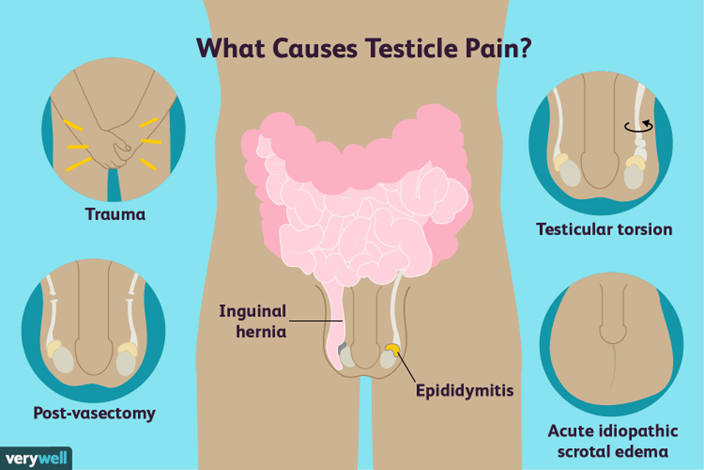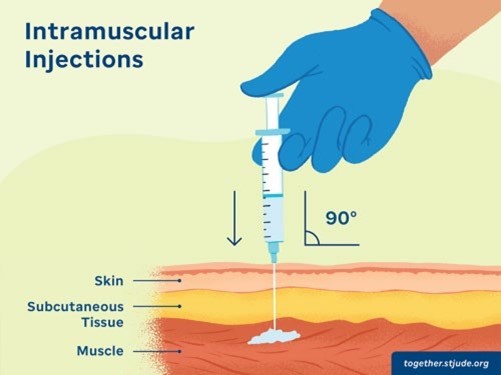A male adolescent arrives at the clinic and reports intense pain in the testicular area that occurred during football practice at high school. The nurse observes the scrotum and identifies significant erythema and swelling.
Which action should the nurse take?
Report the findings immediately to the healthcare provider.
Obtain a swab of secretions from the penis and urethra.
Collect a sterile urine sample for culture and sensitivity.
Provide the adolescent with a urinal for urinary hesitancy.
The Correct Answer is A
The nurse should report the findings of significant erythema and swelling in the scrotum immediately to the healthcare provider. The adolescent's symptoms may be indicative of testicular torsion, which is a medical emergency and requires prompt treatment to prevent loss of the testicle. Obtaining a swab of secretions from the penis and urethra or collecting a sterile urine sample for culture and sensitivity are not appropriate actions for this presentation. Providing a urinal for urinary hesitancy may be appropriate if the adolescent is experiencing difficulty urinating, but this should not take precedence over reporting the findings to the healthcare provider.

Nursing Test Bank
Naxlex Comprehensive Predictor Exams
Related Questions
Correct Answer is A
Explanation
The boy's reported symptoms may indicate stress or anxiety related to his school experience. By asking the boy to describe a typical day at school, the nurse can gather information about the child's interactions with teachers and peers, academic performance, and any other potential sources of stress. This information can be used to develop an appropriate plan of care that addresses the child's emotional and physical needs.
Comparing vital signs or conducting a neurological assessment may not provide useful information in this case, and counseling the parents to pay more attention to the child is not a recommended intervention without first identifying the underlying cause of the child's symptoms.
Correct Answer is C
Explanation
Administer the injection into the middle of the lateral aspect of the thigh is the correct choice. This is the recommended site for intramuscular injection in toddlers who have been walking for at least one month, as it is a large muscle with minimal nerves and blood vessels. Choices A, B, and D are not appropriate techniques for administering an intramuscular injection to a toddler with pneumonia.

Whether you are a student looking to ace your exams or a practicing nurse seeking to enhance your expertise , our nursing education contents will empower you with the confidence and competence to make a difference in the lives of patients and become a respected leader in the healthcare field.
Visit Naxlex, invest in your future and unlock endless possibilities with our unparalleled nursing education contents today
Report Wrong Answer on the Current Question
Do you disagree with the answer? If yes, what is your expected answer? Explain.
Kindly be descriptive with the issue you are facing.
